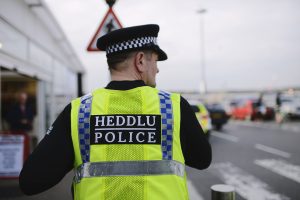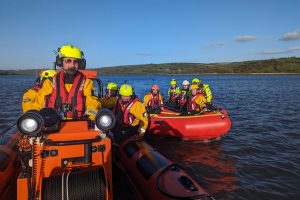AN NSPCC investigation reveals that Facebook and the apps it owns were used in over half of online grooming cases after the introduction of a new offence, with Dyfed-Powys Police recording 19 cases in six months.
In the first nine months of a new offence of Sexual Communication with a Child, there were 1,628 crimes recorded in England and Wales, and police revealed what platform was used in 956 cases. Facebook was used in a third (32.6%) of cases, with Facebook owned apps Instagram and Whatsapp used in nearly a fifth (19.8%) of cases. The second most-used app was Snapchat with 176 cases.
In Wales, police forces recorded 149 crimes under the new grooming offence, with 46% of these using Facebook and Facebook-owned apps when the method was disclosed by police.
South Wales Police, which along with Dyfed-Powys Police only gave data for the first six months of the new offence instead of nine, saw the most recorded crimes with 74. North Wales Police was next with 35, followed by Gwent Police with 21 and Dyfed Powys Police with 19.
Matt Hancock, the UK Government’s Secretary of State for Digital, Culture, Media and Sport has heralded the end of the ‘Wild West Web’, and the NSPCC has urged him to follow through by bringing in a regulator to force social networks to keep children safe.
At present DCMS has plans to introduce a voluntary code for social networks, which sites could choose to adhere to, or ignore, with social networks self regulating for the past ten years.
Figures from Freedom of Information requests to police forces across England and Wales show the number of cases where groomers used Facebook, and apps owned by Facebook. The youngest victim recorded was aged just two years old.
As part of its #WildWestWeb campaign the NSPCC has called for Mr Hancock to bring in an independent regulator for social networks with fining powers, a mandatory code which introduces safe accounts for children as well as mandatory transparency reports forcing social networks to disclose how many safety reports they get, and how they deal with those reports.
In May 2017 Welsh Education Secretary Kirsty Williams announced that the Welsh Government would create an online safety action plan for children and young people. NSPCC Wales is looking forward to its publication and calling on the Welsh Government to work jointly with the UK Government, to ensure children are better protected from harm online.
Des Mannion, head of NSPCC Cymru/Wales, said: “UK Culture Secretary Matt Hancock has a golden opportunity to put an end to the Wild West Web and force social networks to protect children online. Facebook has shown it is happy to use data for commercial purposes, but has failed to harness data in a way that can be used to prevent grooming.
“Facebook should be leading the way, but instead it has demonstrated time and again that self-regulation isn’t working and social networks can’t be left to mark their own homework. Mr Hancock could be the person who makes the internet a safer place, for every child now and in the future. We hope he seizes the chance to do that.”

















Add Comment